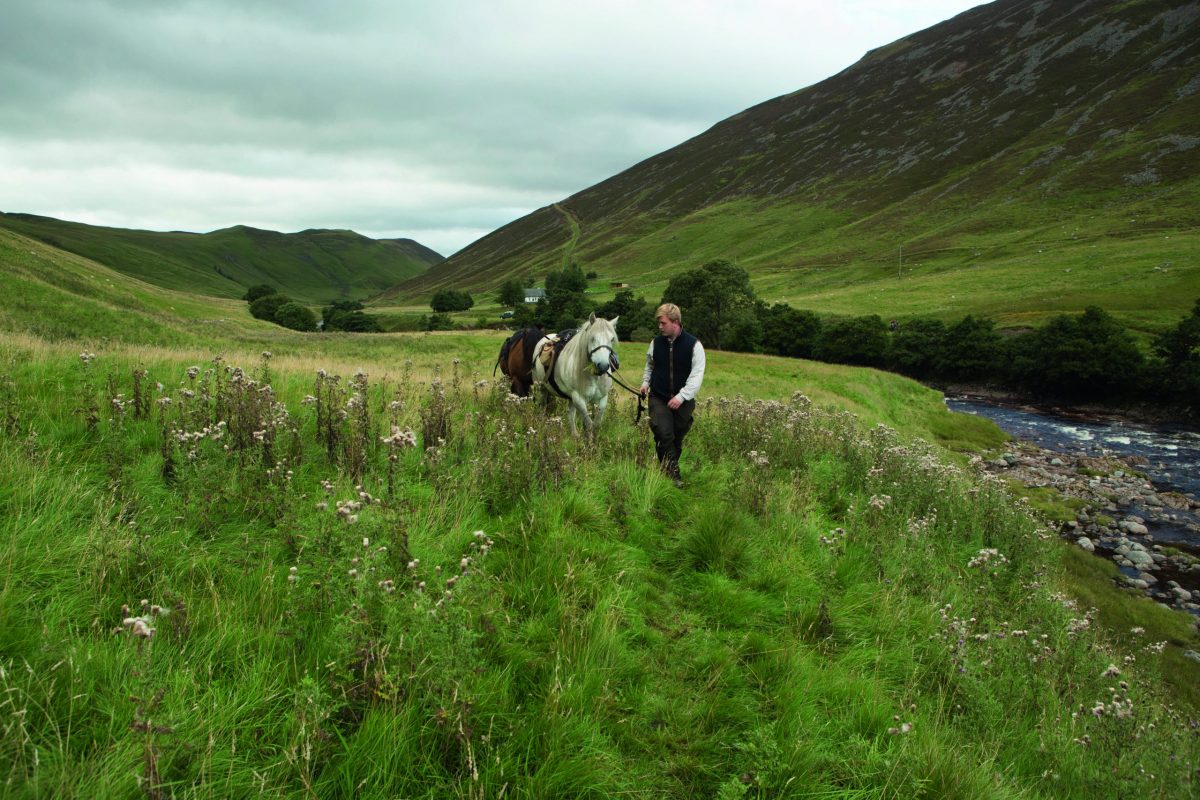First season as a gillie – how to approach it
Approach your first season as a gillie with an eagle eye on the contract, a savvy approach to the headkeeper and a hearty breakfast

A young gillie has much to contend with, but working with ponies can be a real joy of the trade
It’s that time of year when the new batch of gamekeeping students across the country are about to start their courses. It is also the time of year when last year’s graduates have hopefully got their foot in the door within the industry — and for those who wish to pursue deer, this often comes in the form
of a seasonal gillie’s role.
By now, the new gillies will be settled into their bothies on estates across the Highlands, they should be acquainted with their quadrupedal co-workers and have maybe even had a couple of guests out. It’s an exciting time for a young gillie, in a new place and with new responsibilities, all while staring down the barrel of a future career with all the fresh optimism and hope that inexperience provides.
Stand your ground
I’ve gillied on various estates and gained a lot from my time at each. I have learned a great deal from the mistakes I made and the things I experienced, so I’d like to share some advice with any gillies just starting out.
First, read the contract. I know the excitement of starting a new job can cause you to skim through boring paperwork, but it’s important that you read the contract thoroughly, retain your own copy and question anything you don’t believe is right. Even as a seasonal worker, you have rights.
Next, don’t be bullied out of taking your pension. When I was younger, I was sat down by a laird and encouraged to opt out of the estate’s pension scheme, because “seeing as I was only there for the season” it wouldn’t be worth doing for such a short time. You may end up working multiple seasonal jobs before you get something permanent and that can equate to a few years without paying into your pension. Don’t let a penny-pinching laird talk you
into shooting yourself in the foot.
To get the most out of your time on the estate, you need to learn as much as you can. Don’t be afraid to ask questions, or to ask to be shown how to do something. Headkeepers aren’t teachers by trade — it’s a two-way street. You have to show effort and willingness before they’ll share their knowledge with you.
The more you know about your estate, the better equipped you are to answer the questions of clients, and fill any awkward silences. A big part of sporting estates is hospitality, so a store of wildlife or history anecdotes can go a long way to keeping clients engaged. Entertained clients make for happy headkeepers; this can trickle down to you through better tips or a more favourable reference.
For many young gillies, it’s their first time away from home, and for some it truly shows. Look after your boots, layer-up properly and make sure you eat breakfast. Learn how to batch cook — it will save money and time — and make sure to give yourself at least one hot meal a day, especially during the hind season – cigarettes and energy drinks are not a stable diet. Bothies are cold and hills are colder, so take a flask. Make time to leave the estate and see other people – your mental health needs maintenance as much as your physical health does.
Finally, if you work with ponies, ask your headkeeper if you can keep a shoe at the end of the season. I have a shoe from Shuggie, my first pony, and it makes me think of rum every time I look at it. I also have a shoe from another pony that makes me chuckle about how much of a little git he was every time I see it. I wish I’d kept shoes from the other ponies I’ve worked. They are physical reminders of memories made and will stay with you long after your gamekeeping career has taken off.








